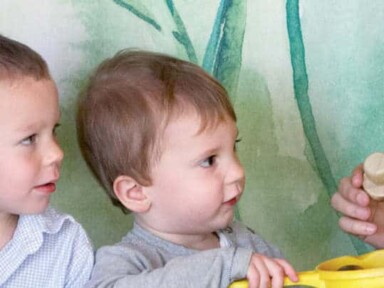Attachment refers to the special relationship of a child to parents or persons that care for it over the long term. The need to form a bond with selected attachment figures is a basic human need. Only the presence of such an attachment figure, who represents the “secure base”, allows the child to engage with their environment with openness and curiosity.
The provision of reliable, sensitive support in times of distress or in difficult situations allows the child to develop self-esteem and establish the necessary trust in their social environment.
An attachment system in the child care centre can only be established with the support of a familiar adult. This person serves as the secure basis for the child’s sense of well-being in the new environment until the child accepts the educator designated as the attachment figure as an agent of their sense of security, trust, support and comfort.
We operate on the basis of the “Berliner Eingewöhnungsmodell” (Berlin adjustment model), for which children normally require between two and four weeks to establish such a relationship. The required timeframe can be adjusted as agreed with the designated educator.
The parents undertake to set aside a period of four weeks, during which they bring their child to the child care centre only during the working hours of the designated educator. The parents ensure that one of the parents or another attachment figure of the child is present during this time to support the child as necessary and to familiarise themselves with life in the element-i child care centre.
A properly conducted adjustment phase provides a robust basis for a trust-based relationship in the day care environment for many years.
